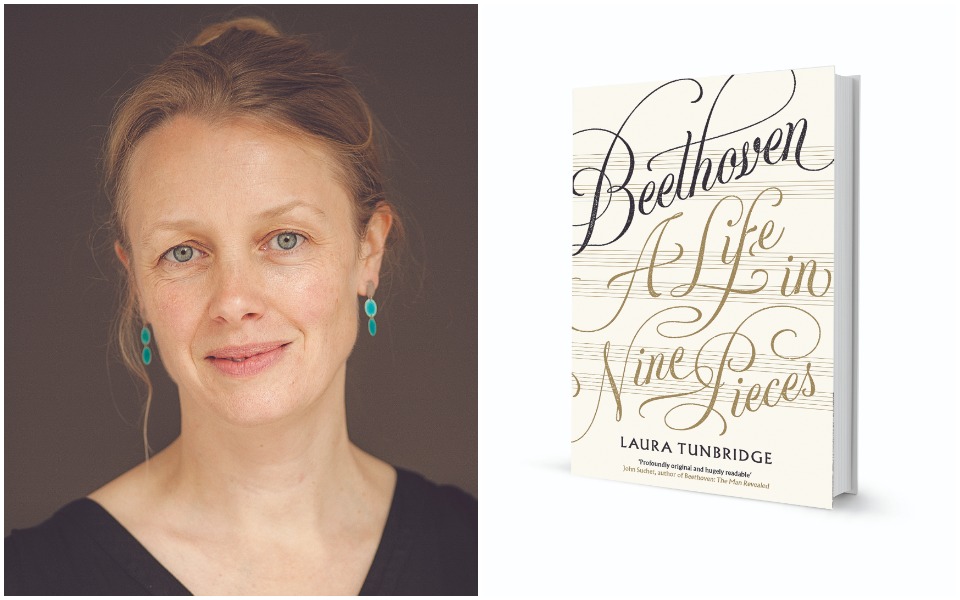An intimate portrait of a great composer

From 1795 to 1816, inflation was so rampant in Vienna, because of the Napoleonic Wars, that Ludwig van Beethoven’s fortune shrank 40 times. Today, the average European is suffering from depression, uncertainty and anger because of the coronavirus crisis, but virtually none of us could possibly realize what it would be like to live in Beethoven’s times.
Obviously, crises do not prevent the creation of masterpieces (if they do not actually encourage it) and during this tumultuous period Beethoven was busy creating a body of work that inspires the notion of perfection through the sense of hearing (the same sense that he himself, ironically and tragically enough, began to lose after his 30s). We don’t really know the composer’s exact date of birth, but it is certified that he was baptized on December 17, 1770 in Bonn and his biographers assume that he was born the day before.
In December 2020, all events related to the 250th anniversary of the composer’s birth were meant to come to a climax, but inevitably a vast number of them have been canceled due to the pandemic.
Among the recently published books about Beethoven, what really stands out is “Beethoven: A Life in Nine Pieces,” by Laura Tunbridge, professor of music at St Catherine’s College, Oxford. The writer portrays Beethoven’s life in nine chapters, each titled after iconic works by the composer that are related to pivotal events in his life. In light of the anniversary, Tunbridge spoke to Kathimerini about the composer and her book.
As you have shown in “Beethoven: A Life in Nine Pieces,” the composer did not easily accept higher authority. Do you think that his relationship with his father was reflected in almost all other subsequent relationships in life – from his teacher Haydn to his wealthy patrons? Also, do you believe that this issue informed his music style, characterized by the antagonism between competing forces?
I’m not sure if it’s a “father issue” but he was obviously unafraid of resisting authority when he thought he should. Beethoven’s willingness to question the advice of teachers and patrons has fed into his image as a rebel. It probably has a musical counterpart in his willingness to push beyond conventions and the dramatic tension in many of his compositions. For the most part, though, any antagonism between competing forces is resolved in the end. Similarly, while Beethoven often argued with people, he usually made up with them afterwards. For example, he might have disagreed with Haydn’s judgment of his Opus 1 piano trios, but he dedicated his Opus 2 piano sonatas to him.
You mention that he had said that his mother was his best friend. How did her loss affect him?
His mother’s death in 1787 cut short Beethoven’s first visit to Vienna and meant that he had to take on greater responsibility for the care of his younger brothers, as his grief-stricken alcoholic father was incapable of looking after them. Beethoven evidently missed his mother. Interestingly, despite us mostly thinking of him as a lonely bachelor, he had close friendships with women such as Countess Anna Maria von Erdődy and the piano maker Nanette Streicher.
What influence did Freemasonry and the Illuminati have on Beethoven’s thinking, philosophy and ideals about the deeper meaning of the world and art?
Some of his teachers and patrons in Bonn and Vienna were members of the Illuminati or were Freemasons, as were writers he admired such as Friedrich Schiller (whose “Ode to Joy” forms the choral finale of the Ninth Symphony). They subscribed to Enlightenment ideals of equality that seem in keeping with some of Beethoven’s attitudes. Although he might have absorbed some Masonic principles, unlike Mozart and Haydn he was not a member of a lodge. Beethoven read widely and was interested in philosophies and religions from around the world and through the ages; his art and his understanding of the world reflected that richness.
What can we really say about “Missa Solemnis”? Why does it appear to be a work beyond words?
“The Missa Solemnis” uses a conventional liturgical text, but Beethoven’s musical setting is so grand it is not suitable for using in a church service. Perhaps because of the work’s scale and musical complexity, and because of Beethoven’s idiosyncratic religious beliefs, “The Missa Solemnis” somehow seems abstract. That, along with its spiritual aspects, might be what makes it seem like it is beyond words.
Do you think that Beethoven transformed his loss of hearing into an asset because it “freed” him from the materiality of sound and enabled him to approach music intuitively in the abstract, away from instruments that produce just fleeting versions of timeless symmetries and harmonies? By going deaf, did he become better suited to “hear” the pure mathematics that music is and to put it on paper?
It’s hard to know what impact Beethoven’s gradual loss of hearing had on his musical imagination. Some of his contemporaries complained that his late music was for the eye rather than the ear, but perhaps it encouraged him to experiment more. He certainly still wanted his music to be played and heard rather than left on paper. The stories of him sitting in between the players of a quartet at rehearsals, correcting their bowings, suggests that the materiality of sound remained important to him.
He was temperamental, against the norms and prone to anger and quarrels. But living in 60 homes in a rather short life seems bizarre. Why was he constantly on the move given that he never really had pressing financial problems?
I think you answered that by pointing out he was prone to anger and quarrels, which, along with his music-making, made him a noisy tenant. Some of his eccentricities – such as pouring water over himself when bathing that seeped through to the apartment below – also made him an unpopular neighbor. Then again, it wasn’t unusual for people in Vienna to move apartments regularly, even if Beethoven did it more than most.
Why did a man of the stature and self-confidence of Beethoven not marry? Also, perhaps, only an unfulfilled love can qualify for a title such as “Immortal Beloved” in the inner life of a person. Do you suspect there’s a rejection behind “Immortal Beloved” that shaped his approach to life as a struggle?
Beethoven fell in and out of love frequently and admitted on occasion that he would like to marry. We know that he was not always an easy person to get along with and that he might have been frustrated that the women he wanted were not available. Musicians mixed in high society, as teachers, performers and composers, but that did not mean they could marry members of the aristocracy. Together with his deafness and other illnesses, and the battle over custody of his nephew Karl, Beethoven’s romantic disappointments may have made life a struggle. The discovery of the letter to the “Immortal Beloved” after his death made it seem as if that affair was particularly significant to him but she was certainly not the only one who got away.
Beethoven insisted on getting custody of his nephew Karl. Then he tutored him in piano. Could we suggest that Beethoven insisted on this battle to get custody because he had a deep desire for an heir to carry the flame of his own musical genius?
He may well have hoped to have had an heir who would carry the flame but realized that Karl was not going to do that in music. Their relationship was fraught: Beethoven was a strict and severe guardian and it was only after Karl’s attempted suicide that he recognized how hard he had been on him. Beethoven took care to ensure that his family would be looked after, financially, and that his musical reputation would last beyond his lifetime.
You have written that “Grosse Fuge” and String Quartet No 13 are “music about music.” Can you elaborate on that?
The way that both pieces play with conventions demonstrates Beethoven’s mastery of form and willingness to experiment with what it was possible to express and explore through music. What does it mean for Beethoven to write a cavatina – which usually means a short vocal piece – for a string quartet, as he does in No 13? Should we hear the first violin as a singer or is he indicating something about operatic expression?
You brilliantly described what a fugue is. So, is your “Nine Pieces” book a fugue? Is life a fugue? And what is your favorite of the “Nine Pieces” that comprise your story about Beethoven’s life?
“Tutto nel mondo è burla” – “everything in the world is a hoax” – goes the fugue at the end of Verdi’s “Falstaff.” A fugue keeps many things spinning in the air at once – rather like a book and, yes, life. I like all of the nine pieces I discuss in my book, of course! They offer so many different aspects of Beethoven’s music – perhaps the one that captures that range best is the “Choral Fantasy,” which shows him as pianist, composer and impresario.





